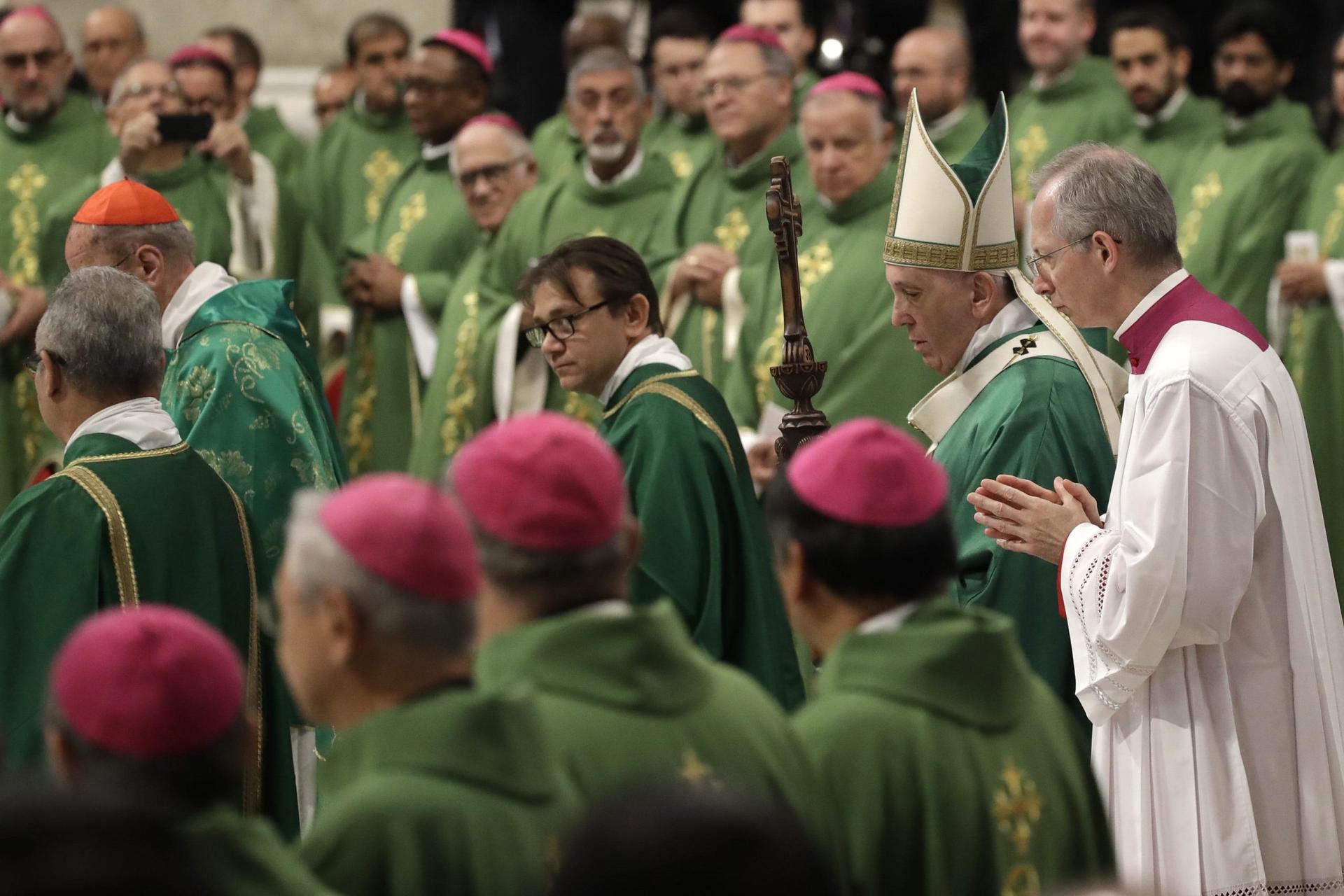ROME – Aiming at what the pope’s top aide for Synods of Bishops called “the transformation of the synod from an event into a process,” the Vatican Friday released details for the next such gathering of bishops and other Catholic leaders from around the world in October 2023 – devoted, as fate would have it, to the synod itself, under the heading of “For a Synodal Church.”
Originally planned for October 2022, the next synod is now comprised of a two-year process that will unfold in three phases: A diocesan phase, a continental phase, and a universal phase.
The opening working document for the synod, called an instrumentum laboris and on which much of the discussion is based, will be drafted according to the results of diocesan and continental phases.
According to a May 21 Vatican communique, the three-stage process “will help to make possible a true listening to the People of God to ensure the participation of all in the synodal process.”
“It is not just an event, but also a process that involves in synergy the People of God, the College of Bishops and the Bishop of Rome, each according to their proper function,” the communique said.
Pope Francis will inaugurate the diocesan phase of the synod Oct. 9-10, 2021, with each bishop opening that phase the synod in their own respective dioceses on Oct. 17.
The diocesan phase will last from October 2021 to April 2022, and it will largely be a consultative process with laypeople throughout the world “so that the synodal process is carried out through listening to all of the baptized.”
To guide the process, the Vatican’s Synod of Bishops office will send out a preparatory document and questionnaire to all dioceses, as well as the offices of the Roman curia and the heads of religious orders.
Bishops will then appoint one representative to oversee the consultative process in their area and another to liaison with the episcopal conference in their countries.
Each diocese is asked to hold a pre-synodal meeting to conclude the consultative process, after which the diocese will gather contributions from the laity in their area and compile them into a report to the national bishops’ conference.
During the continental phase of the synod, which will last from September 2022 to March 2023, continental bishops’ conferences are encouraged to communicate with one another about the results of the diocesan consultations in order to “deepen discernment within the specific cultural context of each continent.”
A first draft of the instrumentum laboris is expected to be published in September 2022, based largely on the input received from laypeople during the diocesan phase.
Pre-synodal assemblies at a continental level will continue and are expected to conclude with the drafting of a final document by each conference that will be sent to the Vatican office for the Synod of Bishops.
A second draft of the instrumentum laboris then will be compiled and sent to participants in the Ordinary Synod of Bishops set for October 2023, marking the final, universal level of the synod.
In an interview with Vatican News published May 21 to coincide with the announcement of the synod process, Cardinal Mario Grech, secretary general of the Synod of Bishops, said the event was delayed largely due to ongoing complications with travel and group gatherings due to the coronavirus pandemic.
Speaking of the broad involvement with laypeople in the planning process of this synod, Grech said that, “The history of the Synod illustrates how much good these assemblies have brought to the Church, but also how the time was ripe for a wider participation of the People of God in a decision-making process that affects the whole Church and everyone in the Church.”
“In fact, the synodal process is defined by the idea that the Synod of Bishops is the point of convergence of this listening process conducted at every level of the Church’s life,” he said, adding, “This means listening to the local church, the People of God.”
Pointing to Pope Francis’s repeated emphasis on the importance of listening to the sensus fidei of the People of God, Grech said “one might say that this is one of the strongest themes of the current pontificate.”
“The Second Vatican Council teaches that the People of God participate in the prophetic office of Christ. Therefore, we must listen to the People of God, and this means going out to the local churches,” he said.
Follow Elise Ann Allen on Twitter: @eliseannallen












